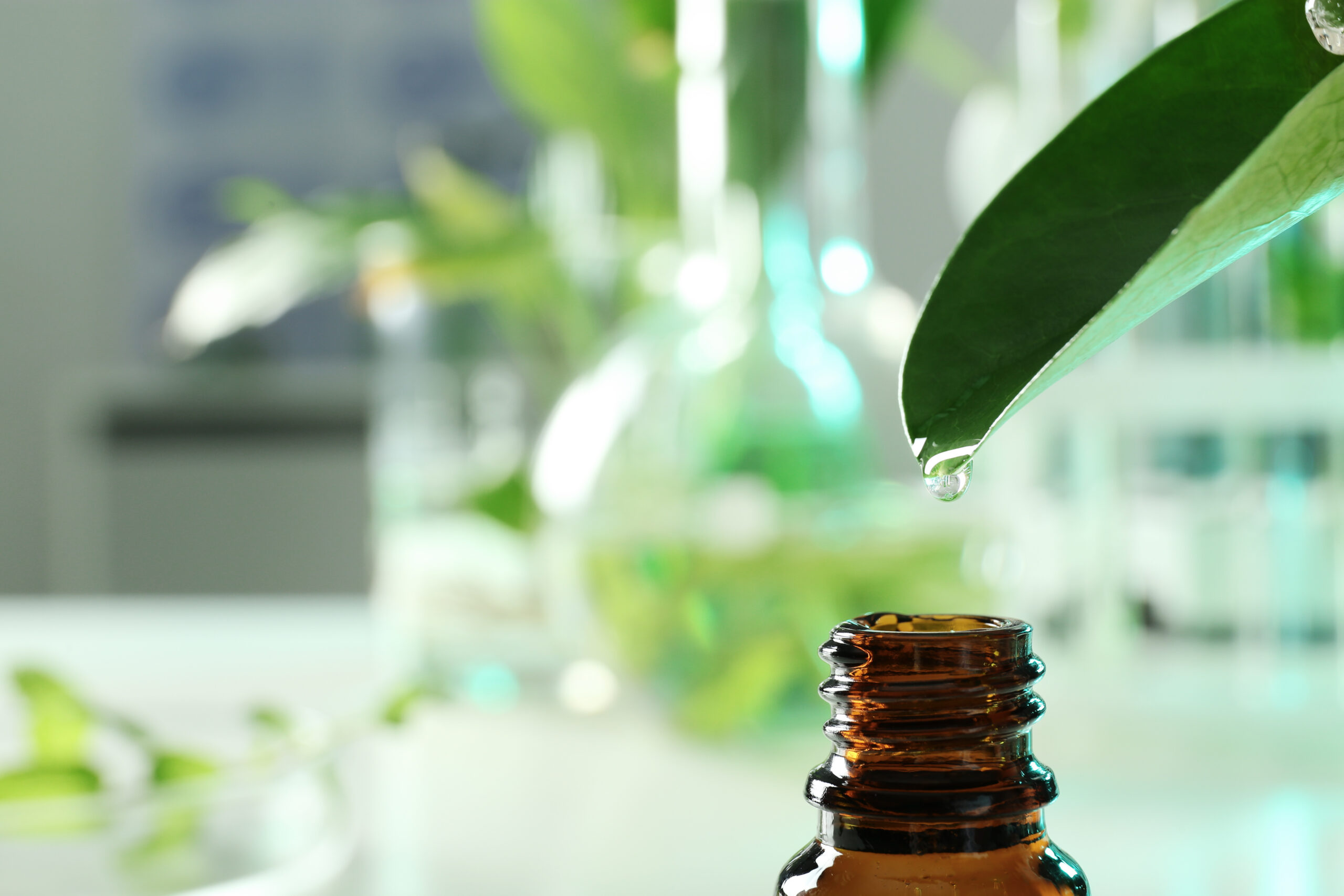March 21, 2022 – Our previous article gave an overview of the major issues related to the substantiation and contextualization of green claims. Here, we will look at them in detail for specific claims: 100% natural, vegan, non-GMO, and organic.
100% Natural
As for natural, the main cause of uncertainty is that it is not clear whether natural refers only to natural substances or also to derived natural substances. Natural substances are ingredients of natural origin that have not undergone chemical modification during the production process. Conversely, derived natural substances are raw materials obtained by chemical reactions from primary ingredients of natural origin.
There is no legal basis to say which chemical reactions are allowed or not to produce a derived natural substance. However, it is the case that well-established voluntary guidance tools and private standards permitting third-party certification will focus on a selection of chemical reactions, either in the form of a normative list or only those that reflect the principles of green chemistry. Commonly these include reactions such as: “acylation, amidation, condensation (with the elimination of water), dehydrogenation, dimerization, esterification, glycosidation, hydrogenation, hydrogenolysis, hydrolysis (including saponification), neutralization, oxidation (with oxygen, ozone, and peroxides), phosphorylation, pyrolysis, sulphatation and transesterification” (Journal of Cosmetology & Trichology, 2020).
As mentioned, there is no uniformity among the EU Member States, and the evaluation of the claim ‘natural’ might depend on the interpretation of the national Competent Authorities. For example, the French Autorité de regulation professionnelle de la publicité (ARPP) distinguishes between ‘natural’ and ‘natural origin’. Moreover, it sets the requirement that a finished product can be described as such only when its natural or natural origin content is greater or equal to 95%.
In any case, when a brand claims that a product is 100% natural, it must provide a justification document proving that there are no synthetics ingredients in the cosmetic formulation.
100% Vegan & Non-GMO
There is no official legal definition of vegan, but multiple ones. Yet, the common element is that raw materials must not be tested on animals, nor be products of animal origin. To duly inform the consumer, manufacturers should be clear in which aspects their product is vegan. Otherwise, companies can independently certify their product according to third-party criteria. In such cases, the product will carry the label of the standard-setting organization so to ease the communication of this qualified characteristic to the consumer.
Additionally, it is interesting to note that the claim ‘100% vegan’ implies that all possible vegan criteria are met; therefore, it requires a more robust substantiation.
Although ‘non-GMO’ is a claim usually related to food products, it is commonly used in the cosmetics industry, mainly about a substance’s GM origin and its processing. In the EU, Directive 2001/18/EC defines GMO, and for transparency, existing EU laws require traceability and labeling of foodstuffs. Furthermore, EU law for organic agricultural products prohibits GMOs altogether, as laid out in Article 9 of the EU Council Regulation 834/2007. The criteria from Article 9 prohibiting production both from and by GMOs is extended to cosmetics within the label criteria of certain private standards on the market, like the NATRUE standard. As such, some third-party certification seals may support ‘non-GMO’ claims by default.
Organic
All raw materials falling under the scope of EU Council Regulation 834/2007, which will mean they have been certified as organic, will have an organic certificate confirming that the substance comes from organic production.
However, this legislation covers agricultural products for use as food only. Thus, whenever a raw material is outside the scope of the EU Organic Regulation or any other organic agricultural regulation, there might be a break in the chain of custody: the organic certificate may only cover the primary product (e.g., the plant) and not the processed cosmetic raw material (e.g., the extract). This breakage introduces uncertainty. It means that the finished product manufacturer cannot unambiguously know if the cosmetic raw material is organic or not. The increased uncertainty impacts the manufacturer’s ability to support such a claim. To surpass the problem, manufacturers can select raw materials certified as organic according to private standard label schemes, like those held by NATRUE and COSMOS.
Moreover, the French ARPP states that a cosmetic product can be presented as organic if it meets at least one of the following requirements:
- It contains 100% of certified organic ingredients;
- It has been certified as organic by a certification body;
- It has been proved that the cosmetic has been produced with organic ingredients equivalent in terms of composition and content to the levels required by the certification bodies.
From the framework described above, it is evident that the topic is quite unclear. Thus, we believe that an action by the EU institutions is desirable. Meanwhile, companies must be careful in the use of these claims – particularly concerning the possible national implications. The best way to stay up-to-date on this subject is to follow COSlaw – your favorite source of cosmetic regulatory content!
Written in collaboration with NATRUE
References
- Journal of Cosmetology and Trichology. (2020). Natural and Organic Cosmetics: Definition and Concepts. Retrieved on 03/08/2021 from https://www.hilarispublisher.com/open-access/natural-and-organic-cosmetics-definition-and-concepts.pdf#:~:text=Natural%20cosmetics%20According%20to%20NATRUE%2C%20for%20a%20cosmetic,Figure%202.%20Natural%20cosmetics%20with%20an%20organic%20portion
- ARPP (2019). Recommandation produits cosmétiques V8 (en viguer le 1er julliet 2019). Retrieved on 03/08/2021 from https://www.arpp.org/nous-consulter/regles/regles-de-deontologie/recommandation-produits-cosmetiques-v8/#toc_0_19
- European Parliament. (2020). Towards a more sustainable single market for business and consumers. Retrieved on 03/08/2021 from https://www.europarl.europa.eu/doceo/document/A-9-2020-0209_EN.html
- European Commission. (2013). Commission Regulation (EU) No 655/2013 of 10 July 2013 laying down common criteria for the justification of claims used in relation to cosmetic products. Retrieved on 03/08/2021 from https://eur-lex.europa.eu/LexUriServ/LexUriServ.do?uri=OJ:L:2013:190:0031:0034:en:PDF
- European Commission. (2007). Council Regulation (EC) No 834/2007 of 28 June 2007 on organic production and labelling of organic products and repealing Regulation (EEC) No 2092/91. Retrieved on 03/08/2021 from https://eur-lex.europa.eu/legal-content/EN/TXT/?uri=CELEX:32007R0834



Leave a Reply